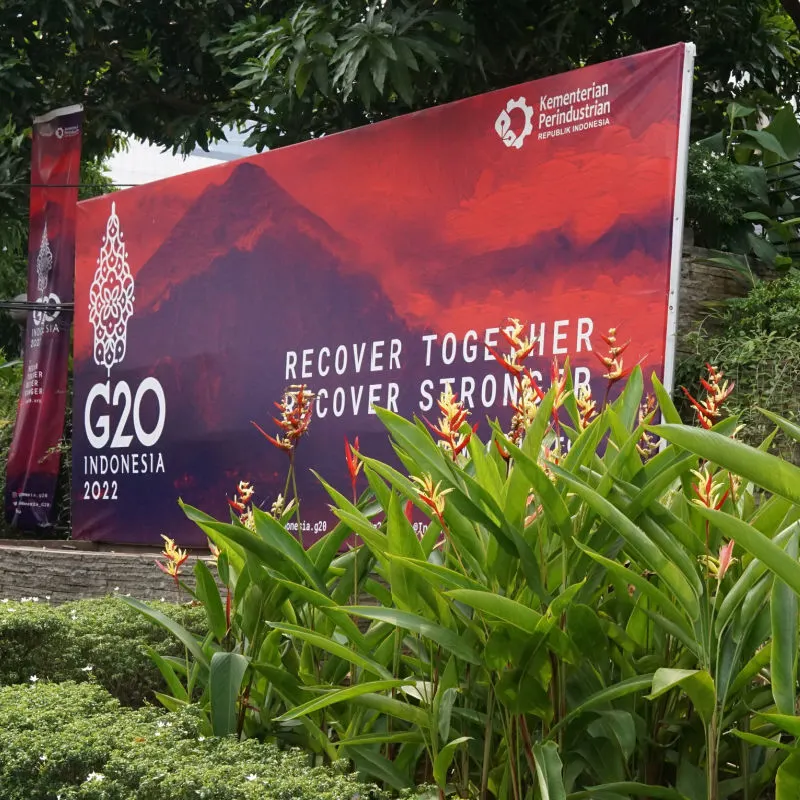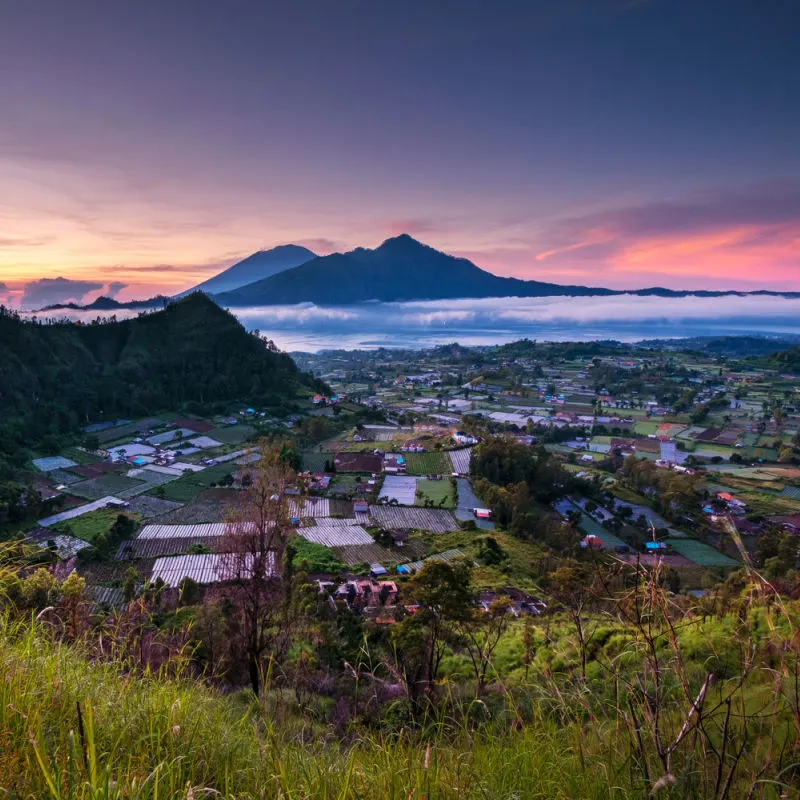Bali is the world’s digital nomad capital. From influencers to vloggers, from social media managers to remote workers across all sectors and industries, the Island of the Gods is a top pick as a home away from home for digital nomads.

At present, it is difficult for digital nomads to stay in Bali long term. They must either find a way to become employed or set up a business or non-profit organization. They then must go through the costly and arduous process of obtaining a KITAS visa which is a type of temporary residence visa.
Alternatively they must enter Indonesia on a social or visitors visa which last just 60-days at a time with an extension. This creates a grey area for many, including immigration staff.

Before the pandemic, Indonesia was weighing up creating a 5-year remote working visa, especially for digital nomads. The discussion was put on hold when Covid-19 struck but as the pandemic draws to a close the topic is up for consideration once again.
This news comes as the new Australian Prime Minister Anthony Albanese arrives in Java to meet with Indonesia’s President Joko Widodo. Topics for discussion include trade partnerships, climate change, and a reciprocal visa agreement that would benefit both Australian and Indonesian travelers.

Perhaps the most significant aspect of the remote worker visa is that digital nomads would not be required to pay tax in Indonesia, provided that their income was being generated overseas.
If revenue of any kind were to be generated within Indonesia then the individual would need to apply for a business KITAS or the D212 Multiple Entry Visitor Visa which allows travelers to conduct work-related activities, visit family, and friends, and travel as a tourist.

The remote working visa has been confirmed to be being discussed by Indonesia’s Minister for Tourism, Sandiaga Uno. Speaking to the South China Morning Post he said ‘…Now with the pandemic handled and all the ministries getting involved and cooperating from the health side to the immigration office, we believe that this is an opportune time to relaunch this idea”
He went on to explain how Bali is experiencing a unique and exciting juncture. He spoke of Bali’s opportunity to transition into a new kind of destination “In the past, the three S was: sun, sea, and sand. We’re moving it to serenity, spirituality, and sustainability. This way we’re getting better quality and better impact to the local economy’.

This visa overhaul may come around quicker than initially anticipated. With the G20 Summit approaching and world leaders from governments and industries heading to the island to discuss the future of tech, trade, and global policy, the Indonesian government is being presented with the perfect opportunity to present such a landmark initiative to the world.

A digital nomad visa would lure tens of thousands of remote workers to Bali, and to Indonesia as a whole. This would bring tremendous economic benefit to regions that are already geared towards the needs of international visitors. It would also support new digital nomad hotspots to be created. Areas like Lombok, and many more rural parts of Java and Sumatra have the internet infrastructure but not the international investment that Bali has.

Speaking of Uno’s vision of serenity, spirituality, and sustainability, this is what many remote workers are looking to achieve more of in their working style. There is a global shift towards remote working and the benefits to workers’ mental health and business’ profits are telling.
Should Indonesia launch a digital nomad visa it would be one of the first countries in South East Asia to do so. Thailand have been trying to implement a remote worker visa for a few years but is yet to launch. The visa category is increasing in popularity across Europe, though many require workers to prove a minimum income and pay tax locally.
Remove All Ads & Unlock All Articles… Sign up for The Bali Sun Premium

Plan Your Bali Holiday:
Book The Best English Speaking Drivers For Airport Transfers & Tours
Choose From Thousands of Bali Hotels, Resorts, and Hostels with Free Cancellation On Most Properties
Book Cheap Flights To Bali
Don’t Forget Travel Insurance That Covers Medical Expenses In Bali
For the latest Bali News & Debate Join our Facebook Community
SUBSCRIBE TO NEW POSTS
Enter your email address to subscribe to The Bali Sun’s latest breaking news, straight to your inbox.

Randy
Friday 10th of June 2022
NO SET IN STONES YET. Head of the Bali office for the ministry of Law and Human Rights, Anggiat acknowledged that officials currently find it difficult to monitor foreigners who come to Bali to work remotely. Let alone considering the 5 year digital nomad visa proposal that would take time to prepare.
Actually the proposal was news to them, nor information on discussions yet at the central government level. This was a desire from Sandiaga Uno (tourism and creative economy minister) to attract digital nomads to Bali with a proposed visa scheme.
There has been loud chatter and rumors in Bali with the proposal of a long-term digital nomad visa but the plan may still be in the early stages at best.
Robert
Thursday 9th of June 2022
Very favourable decision. Start when an launching dates...
Randy
Friday 10th of June 2022
@Robert, to clarify that the proposal is still in the early stages but at the level of the central government no discussions have been made yet.
Randy
Friday 10th of June 2022
@Robert, NO SET IN STONES. Head of the Bali office for the ministry of Law and Human Rights, Anggiat conceded that officials currently find it difficult to monitor foreigners who come to Bali for work. Let alone considering the 5 year digital nomad visa proposal.
Randy
Thursday 9th of June 2022
To quote : "Perhaps the most significant aspect of the remote worker visa is that digital nomads would not be required to pay tax in Indonesia, provided that their income was being generated overseas." Hmmm...that statement leaves to more than one interpretation. What if that income is slowly generated from within Indonesia.
Perhaps
Friday 10th of June 2022
@Randy, same as now, it would be against the rules of the visa. Some have got caught and deported.
Bengt Lundell
Wednesday 8th of June 2022
I really like what I reading I living in Indonesia for over 12 years
Perhaps
Wednesday 8th of June 2022
Many countries have introduced this type of visa, but with crazy income requirements, often 3x or more of national average salary of the country. Many nomads still make normal average salary from their country, so introducing a requirement much higher than that doesn't really create any more realistic options for them. If a country really wants to be attractive to a remote worker.. Have them make enough that they are able to support themselves, not needing to be a millionaire. For Indonesia, if a foreigner makes €1000/month, they would already be able to cover their costs in the country. If you ask €2000,it will automatically cut off a huge proportion of these potential nomads. So, be wise with this, if you want to have specific requirement in the first place. Any remote worker that spends their earnings in the country is already a net benefit for the country. As long as they are able to pay for themselves, have insurance, etc., they don't really cost anything extra to the country, just spending their income in it.
Perhaps
Friday 10th of June 2022
@Randy, yes it's true. We don't really know yet if the proposed visa would also allow to work in Indonesia, or it would just be a longer term 'tourist' visa where the foreigner still has to ear his income from abroad. I guess both could be options. If nomad works in Indonesia, would qualify for local taxes. If not, then just have multi-year visa to spend here-work abroad.
Randy
Thursday 9th of June 2022
@Perhaps, the problem is how the government is going to monitor their activities if they say their only income generated is from their country of origin and paying tax on their earnings. What if the digital nomads start taking local clients and not paying tax to the local economy. Spending money in Bali is one thing but earning money from local clients is another whole different story.
What you earn from respective currencies abroad can go a long way in Indonesia with a low cost of living.